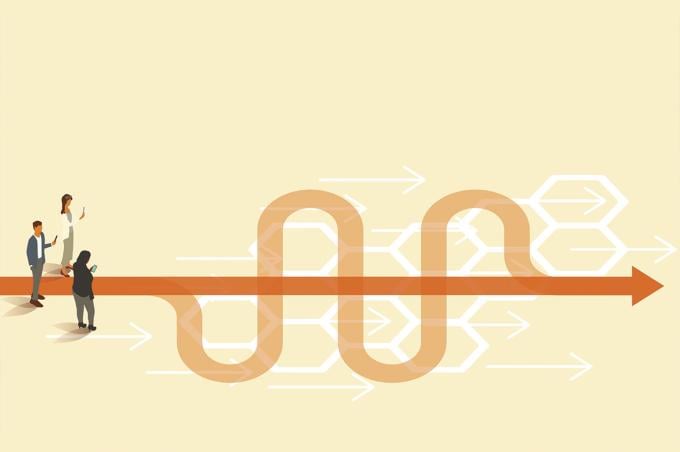Seventy-two health care organizations across the country were named this year as part of the AMA Joy in Medicine™ Health System Recognition Program for their outstanding efforts to address the systemic causes of physician burnout in areas such as commitment, assessment, leadership, teamwork, peer support and practice-environment efficiency.
But to land on the list in 2024, these and other health systems will have to take a close look at something that has been left off the radar for too many: the questions they ask on physician credentialing forms.
Invasive questions about past mental health diagnosis or treatment on state licensing or hospital and insurance credentialing forms have been identified as a contributor to burnout and a barrier to physicians seeking the help that they need.
More than 40% of physicians do not seek help for burnout or depression for fear of disclosure to a state licensing board, while 9% say they’ve had thoughts of suicide, but do not seek help out of concern that their colleagues will believe they cannot handle stress, according to an AMA issue brief (PDF) on confidential care to support physician health and wellness.
AMA advocacy supports the mental health of medical students, residents and physicians by working to remove from licensing and credentialing forms any stigmatizing language that inappropriately asks about past diagnoses or treatment for a mental health condition or a substance-use disorder (SUD).
There is much more work to be done, but a majority of state medical boards have taken action to remove such questions from their license applications, with Ohio’s being the 26th board to do so. Hospitals and health systems also have a key role to play by revising their credentialing forms, experts said during an episode of the “AMA Credentialing Insights Webinar Series.” (Register to view on demand.)
Reducing physician burnout is a critical component of the AMA Recovery Plan for America’s Physicians.
Far too many American physicians experience burnout. That's why the AMA develops resources that prioritize well-being and highlight workflow changes so physicians can focus on what matters—patient care.
Burnout is a “workplace phenomenon”
“Physicians face extensive burdens that are coming at them from all directions,” said Michael Tutty, PhD, group vice president of professional satisfaction and practice sustainability at the AMA.
These include excessive documentation, loss of autonomy and control, prior authorization demands and an inbox full of messages that can’t be ignored.
Tutty explained during the webinar that burnout is a “workplace phenomenon,” and is different from depression or anxiety, which are mental health conditions.
“Burnout manifests in the individual but is really a symptom of problems that are going on in the system where the individual is working,” he said, adding that burnout is marked by personal and emotional exhaustion and a decreased sense of personal achievement.
Remove inappropriate form questions
A recent Medscape survey of 9,175 physicians that was conducted this year asked: “Have you sought help to reduce burnout?”
- 47% said no, but would consider doing so.
- 39% said no, and that they would not seek help.
- 13% said they had.
The reasons given for not seeking help included:
- 42%: I worry that people will think less of my professional abilities.
- 41%: I fear that my medical board or employer will find out.
- 26%: I see depression as a sign of weakness.
Burnout has hit all medical specialties and can happen to physicians during any stage of their career.
Physicians and other leaders involved in physician credentialing should review the forms they require applicants to fill out, said the AMA advises. In doing so, they should look for and revise the following:
- Questions about past diagnosis and treatment for mental illness or SUD.
- Questions with a high degree of subjectivity.
- Questions about employment gaps and time off.
- Subjective questions about medication.
Tutty added that not having questions about past diagnosis and treatment for mental health conditions on credentialing or employment forms will be a requirement for organizations to earn AMA Joy in Medicine Health System Recognition in 2024.
Change is possible
Minnesota is among the state medical boards to replace its question on past diagnosis with a question about current impairment.
“Do you currently have any condition that is not being appropriately treated which is likely to impair or adversely affect your ability to practice medicine with reasonable skill and safety in a competent, ethical and professional manner?” the new question asks.
The effort to change Minnesota’s licensing application was led by medical students and its wording follows AMA policy and matches recommendations put forth by the Federation of State Medical Boards, The Joint Commission and the Dr. Lorna Breen Heroes Foundation.
The accreditation programs for The Joint Commission and the National Committee for Quality Assurance do not require organizations to ask about past impairment.




